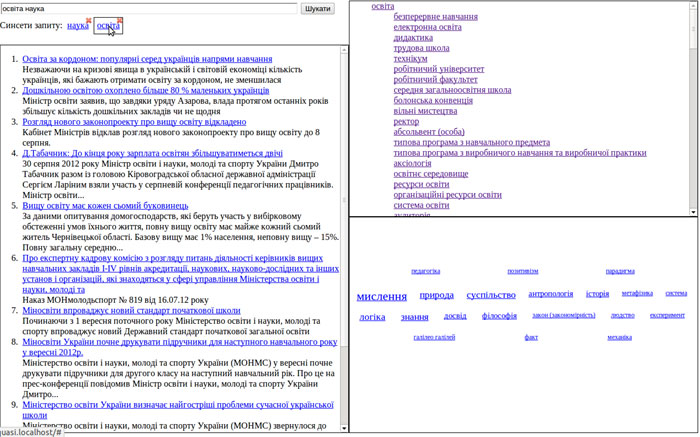Methods of the intelligent software organization for distributed information education environment for sustainable development
A new concept of architectural and algorithmic organization of software that supports information learning environment was worked out. The concept describes a number of modules such as monitoring and processing of the heterogeneous educational information resources module, module for indexing for all types of search (attributive, fulltext, quasisemantic, associative etc), modules which provides intellecualized possibilities such as referencing, clasterization, classification. A new method of organizing data to support the entire range of search possibilities was created. Algorithms for indexing and retrieval of structured and semi-structured textual data were developed. A new method of structural-algorithmic organization of the quasisemantic search means were proposed. The method identifies user’s search interest by modifying the search query using ontologies and knowledge bases of the relevant subject areas, which allows to significantly increase pertinence of the search results. New methods of automatic abstracting scientific and educational textual data based on hierarchical fuzzy neural networks and genetic algorithm-based were developed. The new algorithms for identification and comparison of textual information objects were proposed. The algorithms allow implementation of the classification and clustering software, which have high efficiency when working with educational data. The methods and algorithms were practically embodied in experimental software modules prototypes. Experiments proved high efficiency of the proposed methods.

| Вложение | Размер |
|---|---|
| 522.26 КБ |




